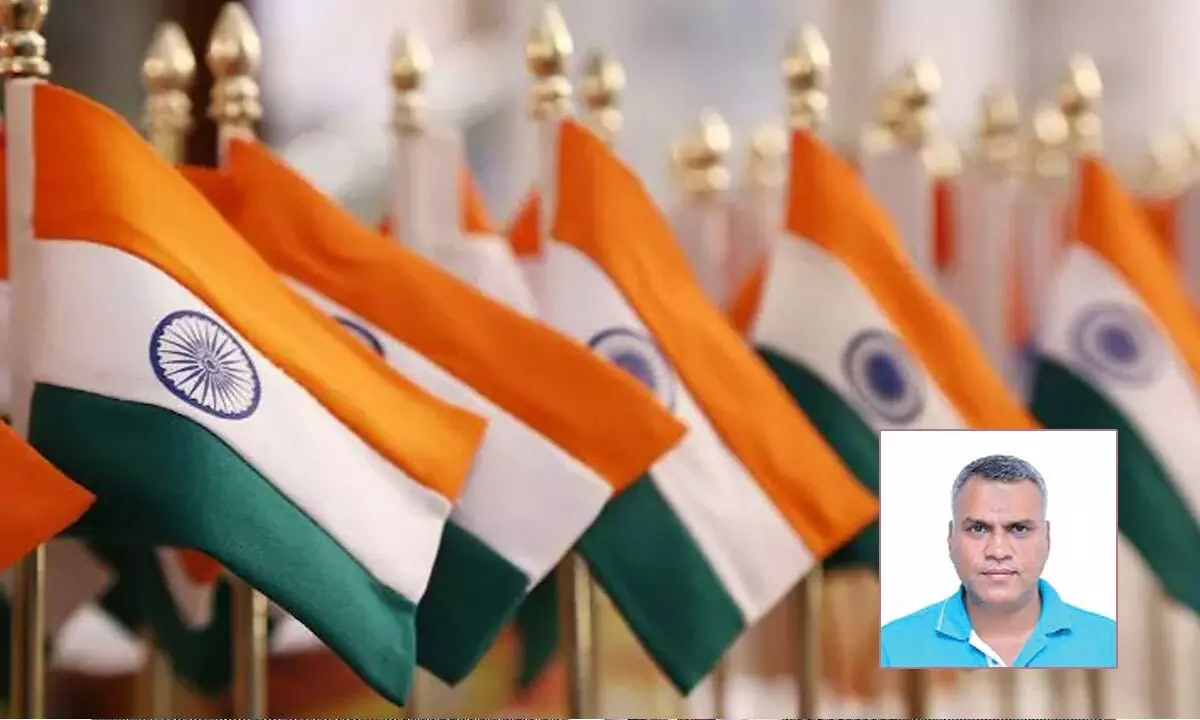India emerging as ‘global keeper of rule-based order’
The world is now looking at India with a greater sense of partnership and a desire for closer engagement
image for illustrative purpose

In the past few years, India has ticked all the right boxes diplomatically, economically, or militarily, redefining its image as ‘a keeper of rule-based order’ and a hedge against Chinese global hegemony.
A survey by Singapore’s ISEAS- Yusof Ishak Institute found respondents in the ASEAN region picked India as a ‘hedge against uncertainties of the US-China strategic rivalry.’ India’s image as a reliable and responsible nation working with the global community has been in the making for decades. However, in recent years India has taken decisive action on all three levels during the international and domestic crisis that has redefined its statuary.
Vaccine Diplomacy: During the peak of the Covid crisis, India produced vaccines on a scale with efficiency and with timeliness that the rest of the world really came to admire, according to external affairs minister S Jaishankar. India had supplied over 235 million total supplies of Covid-19 vaccines to 98 countries during the crisis. Though India manufactures more than 60 per cent of all vaccines sold across the globe, its image as a reliable and trustworthy vaccine manufacturer of the world was stamped by its ‘Vaccine Maitri (Vaccine Friendship) initiative’ that demonstrated it will come to the rescue of humankind without bias.
Vaccine diplomacy was about developing and delivering vaccines to strengthen ties with other nations irrespective of the kind of diplomatic relationship. Thus, India gifted and supplied made-in-India vaccines to low-income and developing countries globally. The endeavour was notable because the vaccines were invented in India and not just made in India.
India, the first responder: India, has demonstrated its commitment as a responsible actor in the international order by efficiently playing the first responder role during global and regional crises between 2014 and now. Be it the recent earthquake in Turkey, the 2015 earthquake in Nepal, or the evacuation of civilians from Yemen in 2015 just before the Saudi-led coalition began air strikes and during the freshwater crisis in the Maldives in 2014. As the first responder, India has sent out aid and deployed resources, including its navy. It has made a mark in the role of Indian Ocean first responder. Thus, it isn’t surprising to see India gaining more influence in the ASEAN region over China, as reported by EurAsian Times.
India’s military power: The Galwan valley clash between Indian and Chinese forces shattered the myth surrounding President Xi Jinping’s military. The subsequent standoff along the border further established China’s military and diplomatic vulnerabilities. However, India’s defence cooperation with ASEAN members, such as military training and equipment exports, including the BramMos supersonic missile to the Philippines, has enhanced India’s image in the region. Thus, it is unsurprising that ASEAN countries see India as a key to dealing with the rising Chinese military power.
Diplomatic neutrality: India has taken a neutral stand in the ongoing Russia-Ukraine war based on its national interest, writes Ashley J Tellis, the Tata Chair for Strategic Affairs and a senior fellow at the Carnegie Endowment for International Peace, in his piece titled ‘what is in our interest: India and the Ukraine war.’
Contrary to the Western analysis and expectations due to the newfound proximity between the US-India - New Delhi’s response to the Russian invasion of Ukraine has been distinctive among the major democracies and among US strategic partners, writes Ashley.
India refused to follow western sanctions against Russia maintaining a public neutrality despite its discomfort with Moscow’s war. At the same time, it continued to engage with Ukraine through humanitarian aid. India’s neutrality shows the world, especially the developing countries, how to ringfence national interest by avoiding siding with warring superpowers.
New Delhi’s stand on the Ukrainian war has reignited talk around the non-alignment movement of the 60s. Alvin Botes, the South African Deputy Minister of International Relations and Cooperation, in an interview with Jonathan Guyer of Vox, said, “the role of the nonaligned movement today is as relevant as it was in 1961.”
Alvin emphasises the importance of ‘Global South solidarity’ and says, “South Africa’s nonaligned position allows the country to have tough conversations with Russia and Ukrainian leaders in pursuit of mediation.” He adds that as long as the P5 hold veto power at the UN Security Council and is oblivious to the interests of the underdeveloped South, - there is a need for the nonaligned movement.
On the global stage, be it during the domestic and international crises, New Delhi has conducted itself as a keeper of rule-based order, thus enhancing its image as a hedge against global uncertainties, especially in the ASEAN region. The world is looking at India with a greater sense of partnership and a desire for closer engagement, according to India’s External Affairs Minister.
(The author is retired Subedar Major (SM) and Founder of My Startup TV)

